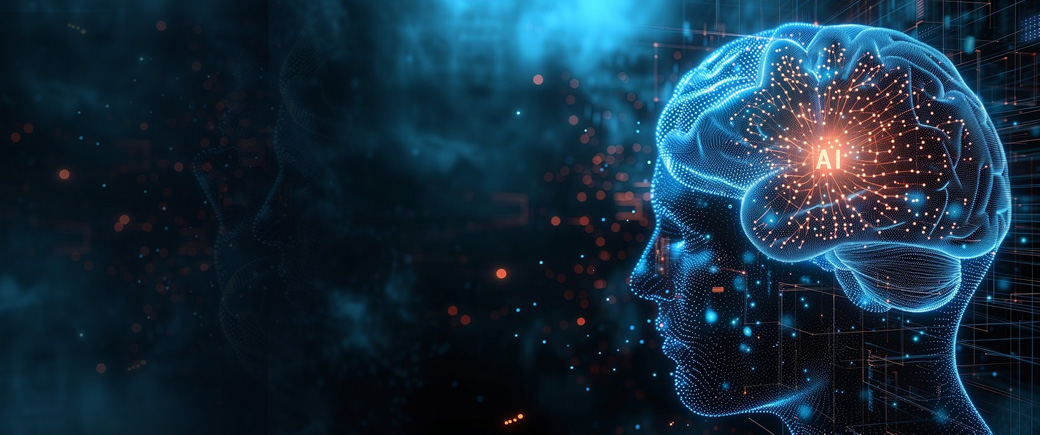
Introduction
In the current period of digitalization, artificial intelligence (AI) and machine learning have emerged as potent allies in the field of marketing. The application of these cutting-edge technologies is completely reshaping the interaction between companies and their customers, data analysis, and the whole concept of marketing. In this piece of writing, we will investigate the scenario where AI and machine learning are influencing the marketing sector and how the latter is blooming due to its new technological advancements.
AI and Machine Learning Contribution to Marketing
The marketing domain has witnessed a dramatic change thanks to AI and machine learning, which have brought in the understanding of consumer behavior at a completely different level. By this means of technology, enormous amounts of data can be processed with the speed of light, giving marketers the power to base their decisions on insights and, at the same time, customize their approaches according to the tastes of different consumers.
Custom Marketing Strategies
The ability to make individualized marketing messages is AI and machine learning's biggest contribution to the marketing area. The segments that are formed by using customer data analysis based on different factors such as age, lifestyle, and taste are the major part of the marketing strategy. This will allow marketers to share the content, which is extremely accurate and appealing for each person, thus leading to more people reacting and even buying.
Predictive Analytics
AI and machine learning are also the powers behind the marketers' ability to guess future trends and customer behavior. The process of analyzing past data and recognizing patterns can lead to forecasting the future views which in turn can help the companies in taking strategic decisions. This whole scenario of predictive analytics could offer a competitive advantage to the companies as they would be able to foresee the changes in the market and turn their strategies around accordingly.
Automation
However, the one strongest point of AI and machine learning in marketing is automation. These technologies have the power to clean up the workflow of tasks performed repeatedly such as email marketing, social media, posting, or providing customer service. Marketers who choose to go this route can not only gain time and resources but also enhance their efficiency and scalability due to process automation.
The Future of AI and Machine Learning in Marketing
The growing technology is the biggest factor that will make AI and machine learning in marketing continue to expand. Not only will the technologies get more sophisticated, but also the businesses will get to the point where they can run their campaigns super personalized, customer experiences would keep getting optimized, and growth would be the ultimate goal. In the future, AI-powered chatbots, voice assistants, and recommendation engines will be the common tools in every marketing department.
Chatbots
Chatbots are powerful tools that are already changing the way customers and businesses interact in terms of customer service and marketing lead generation. This technology is so advanced that it is not only able to talk with the customers like a human but also to know when to give personalized attention by and only through the learning process of each interaction.
Voice Assistants
The use of voice search is increasing, where consumers using voice-activated devices such as Amazon Alexa and Google Home can find the products and services they want. In this situation, marketers will have to adapt their content to voice search so that their companies will still be found. The integration of AI and machine learning will facilitate the comprehension of voice queries as well as the providing of relevant answers.
Recommendation Engines
Recommendation engines are one of the main areas that artificial intelligence and machine learning are going to be used for marketing purposes. These systems observe and analyze the behavior and preferences of consumers and recommend the most suitable products and services for each. Recommendations not only enhance sales but ensure customer satisfaction and loyalty as well.
How is AI Making Marketing Smarter?
Predictive Analytics: Have you ever thought how Netflix gets a hold of your preference and recommends the next movie to you? Predictive analytics based on AI is the answer. The marketing scenario looks at trend-related data and consumers' future behaviors based on past data. Apart from sales forecasts, AI is also involved in lead scoring and potential lead identification, and it does it all with an impressive speed that can baffle you if you consider the term "Big Data".
Personalized Recommendations: Do you get product recommendations from Amazon that sound a bit too perfect? AI is that invisible power which is studying your online activity and purchase history in order to come up with like-minded suggestions. More or less, it's just like having a shopping companion who is more aware of your likings than your best friend.
Chatbots and Virtual Assistants: "What can I do for you today?;" - If you've ever used a chat function on a website for a customer service query, then seamlessly use the AI tool. The bots use natural language processing (NLP) as their technique to get your questions and give you immediate help thus, letting human agents take care of the more complicated questions.
Dynamic Pricing: Sometimes one may notice the way in which prices of different airlines vary. It is done by AI algorithms through analysis of demand, prices of competitors, among other factors, that adjusts dynamically. Just like on a digital marketplace where prices dance according to demand and supply.
conclusion
To sum up, the infusion of AI and machine learning is not just a passing trend but rather a revolutionary change in the marketing industry that has already taken place. These technologies are the main drivers behind personalized marketing campaigns, predictive analytics, and automation. The traditional way of communications between companies/corporations and consumers is being transformed. The growth and innovation in the marketing field are directly linked to the consumers' adoption of AI-powered tools and the data-driven and customer-centric strategies for the future.
